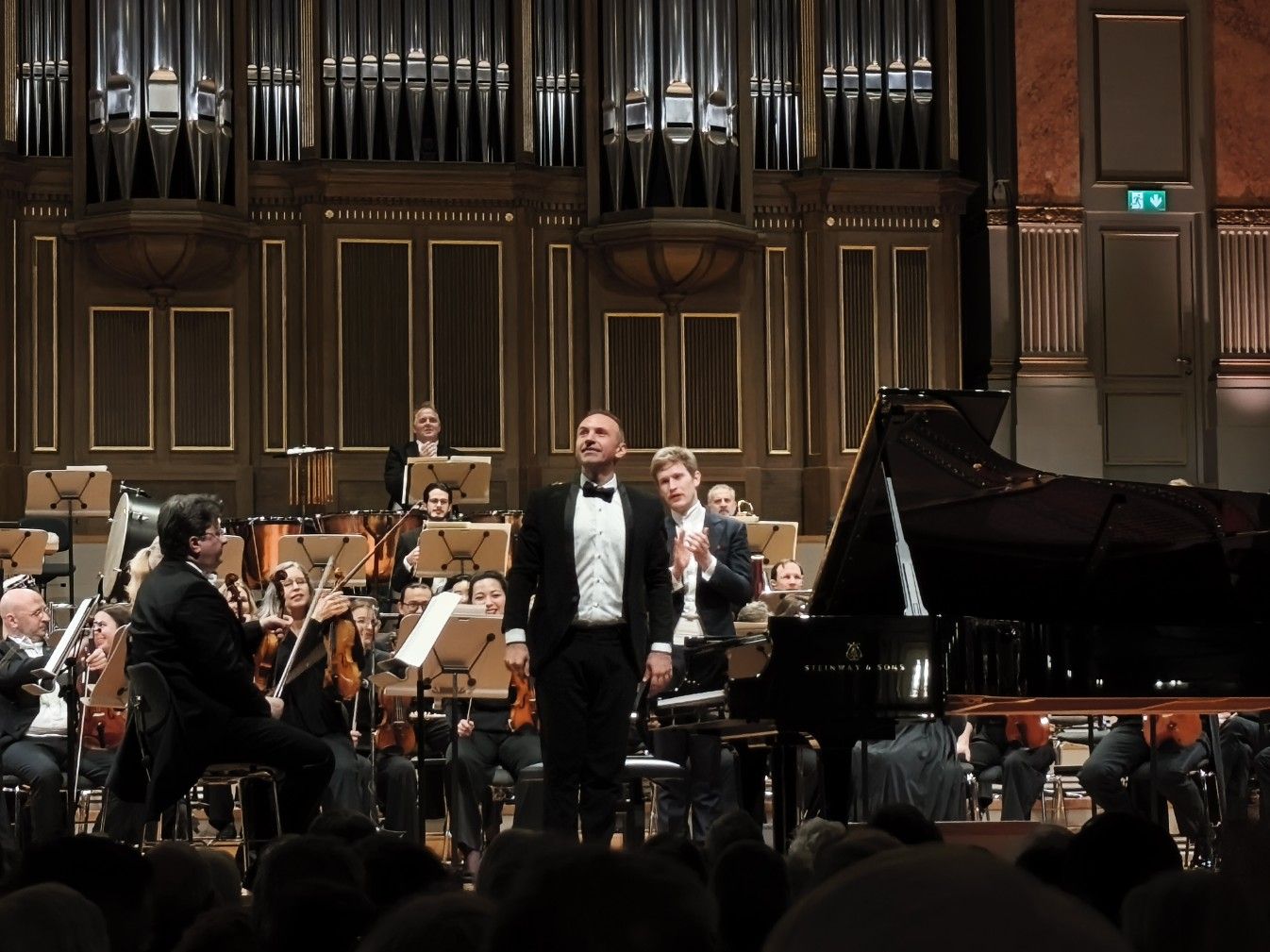Featured News

Oper Aktuell: Simon Trpčeski Performs Liszt Piano Concerto No.2 with Tonhalle-Orchester Zürich & Thomas Guggeis
Liszt’s larger works for piano and orchestra (besides the two piano concertos, there is also the Totentanz) are, unfortunately, encountered less frequently in the concert hall than the piano concertos of other Romantic and late-Romantic composers (Schumann, Grieg, Brahms, Tchaikovsky, Rachmaninoff). Yet Liszt’s Second Piano Concerto in A major, in particular, is a fascinating work and— as last night’s enthusiastic applause from the audience proved—an utterly gripping and compelling composition. The Macedonian pianist Simon Trpčeski is its eloquent and subtly virtuosic advocate.
The way Trpčeski evokes the sometimes lyrical, then again more angular treatment of the core theme—at times surrounding it with crystalline runs, then stretching, shortening, and varying it as it is integrated into powerful chords—is a marvel of pianistic gift. Here, attack stands alongside sparkling cascades; the solo cello and the piano (and later the solo violin) meet in poetic, songful, dreamlike togetherness. This is shortly thereafter replaced by a brash gallop and a march-like elevation of the core theme, with virtuoso playing by the soloist and refined glissandi.
Striking is how the master at the piano repeatedly seeks and finds eye contact not only with the conductor, but also seems to embrace the orchestra’s musicians with his affectionate glances (and, during the final applause, physically as well)—and this despite the fact that the soloist is granted hardly a moment of rest in this concerto. For Trpčeski, as for Thomas Guggeis, this was the first appearance in the large hall of the Tonhalle Zürich. However, Trpčeski had already played Liszt’s piano concerto once before, in 2018, on a tour with the Tonhalle Orchestra.
As an encore, the two musicians, Guggeis and Trpčeski, sat down together at the piano and, with obvious pleasure, played Ravel’s Laideronnette, impératrice des pagodes from Ma mère l’Oye for piano four hands. Wonderful.




